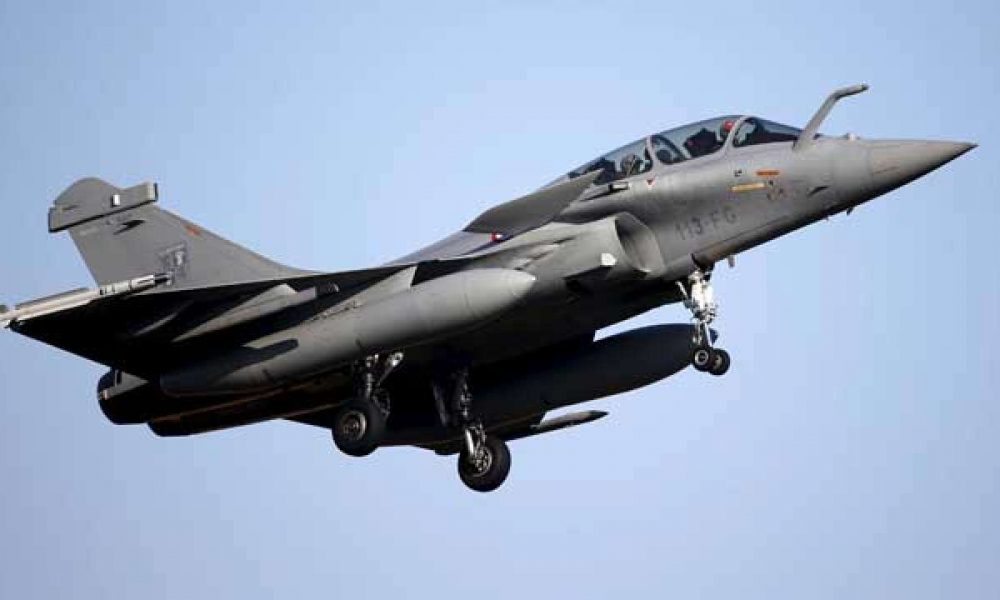Reading Time: 4 minutes
The Prime Minister took unusual initiative in announcing the deal excluding the HAL and this was not known even to the highest ranking officials, days before it was announced. Only two days before the Indian PM announced the deal, the then foreign secretary S. Jaishankar in his briefing to the press on Rafale on April 8, 2015, spoke about HAL’s involvement and mentioned that the ongoing defence contracts were on a different track and Modi’s visit to France was a leadership level one. A report for Different Truths.
More and more details are coming out of the controversial deal concluded by Prime Minister Narendra Modi, in 2015, for the purchase of 36 Rafale fighter jet planes for the Indian defence forces and it is apparent that the Prime Minister totally sacrificed the interests of the high performing public sector Hindustan Aeronautics Ltd (HAL) to patronize a company of an industrialist which has no experience in the area and which set up the unit only ten days before the deal was concluded.
The most astonishing part of the developments is that the Prime Minister took unusual initiative in announcing the deal excluding the HAL and this was not known even to the highest ranking officials, days before it was announced. Only two days before the Indian PM announced the deal, the then foreign secretary S. Jaishankar in his briefing to the press on Rafale on April 8, 2015, spoke about HAL’s involvement and mentioned that the ongoing defence contracts were on a different track and Modi’s visit to France was a leadership level one.
Yet, the deal was revised by the PM himself giving offset contract to the Reliance Defence Ltd, a subsidiary of Reliance group of Anil Ambani – which was formed only ten days before the new deal was signed. It was strange that the Prime Minister denied to work to the government’s own premier defence manufacturing company HAL with a record of 60 years to a private group, which is down in debts and has no experience in aerospace manufacturing and no factory unit.
On Wednesday, the three senior leaders former ministers Yashwant Sinha, Arun Shourie and the lawyer activist Prasant Bhushan told the media that when the new deal was announced by the PM, in Paris, in April 2015, it was not approved by the cabinet committee on security and it was clear, according to them that the defence ministry violated many regulations and procedures to get the deal approved all on a sudden at the instance of the PM.
The leaders pointed out that when PM Modi announced that India would purchase 36 Rafale aircraft in a “fly-away” condition in April 2015 during his visit to France, he not only violated many protocols, but also overlooked the previous, cheaper, deal struck by the UPA government.
They said the UPA government had negotiated a deal with Dassault after an official bidding process, following which Dassault Aviation was given the contract to hand over 18 Medium Multi-Role Combat Aircrafts (MMRCA) in a fly-away condition to India and assist the Indian public sector company Hindustan Aeronautics Limited (HAL) to manufacture another 108 aircraft by transferring its technology. The request for proposal that the UPA issued included cost of initial purchase, transfer of technology and licensed production among others. The deal would have cost India Rs 42,000 crore, the leaders said.
However, Modi overlooked the earlier deal and negotiated the purchase of 36 aircraft at a cost of Rs 60,000 crore (according to documents released by Dassault and Reliance). The trio said this figure is “embarrassing for the government” as each aircraft would cost Rs 1,660 crore.
The leaders said this is an even bigger figure than the one estimated by then defence minister Manohar Parrikar in an interview to Doordarshan. Parrikar had pegged the amount as Rs 90,000 crore for 126 planes, which works out to Rs 715 crore per plane. They pointed out Parrikar’s interview was only a few days ahead of Modi’s announcement of the purchase of 36 aircraft from Paris, indicating that the defence minister may not have been in the loop before the final deal was struck.
The leaders said this figure is “embarrassing for the government” as each aircraft would cost Rs 1,660 crore. Additionally, the new deal did not figure HAL in the picture and did not mention transfer of technology clause, causing further damage to the country’s exchequer.
Shourie, Bhushan and Sinha also hinted at the possibility of the government deliberately denying information regarding the contract, highlighting several examples. Parrikar did not know about the new agreement with Dassault. Or else, why he would talk about buying 126 planes only a week before the final agreement, they asked.
Even as the allegations on the government piled up, the Modi government has not revealed either the cost of the plane or why HAL was denied the offset contract. Defence minister Nirmala Sitharaman has said that since these are issues of national security, the details could not be divulged because of a secrecy clause.
However, Bhushan, Sinha and Shourie pointed out several contradictions in this explanation. They said the same government had disclosed the details of the deal on the floor of the government and questioned why the secrecy clause was not adhered to then.
“In fact, on November 18, 2016, in response to a question asked in the Lok Sabha on the acquisition of fighter aircraft, the MoS, Defence stated that, Inter-Governmental Agreement with the government of French Republic has been signed on September 23, 2016 for purchase of 36 Rafale aircraft along with requisite equipments, services and weapons. Cost of each Rafale aircraft is approximately Rs 670 crore and all the aircraft will be delivered by April 2022.”
They claimed the government was “definitely trying to hide something” when suspicions have emerged around the deal. They also cited examples of cost of defence contracts made public on several occasions by different governments.
“Even more conclusive is the fact that the secrecy clause in the agreement binds India not to disclose the technical specifications and operational capabilities of the aircraft. It does not bind India to keep the price secret. In fact, French President Emmanuel Macron himself stated explicitly in March in an interview to India Today that how much is to be disclosed in this regard is entirely up to the Indian government,” the leaders added.
Nitya Chakraborty
©IPA Service
Photo from the Internet

















